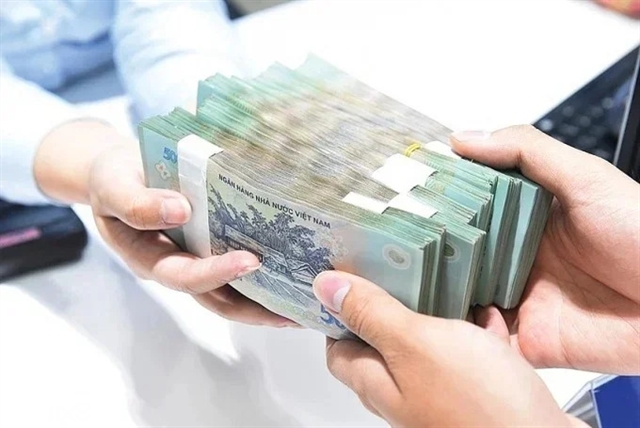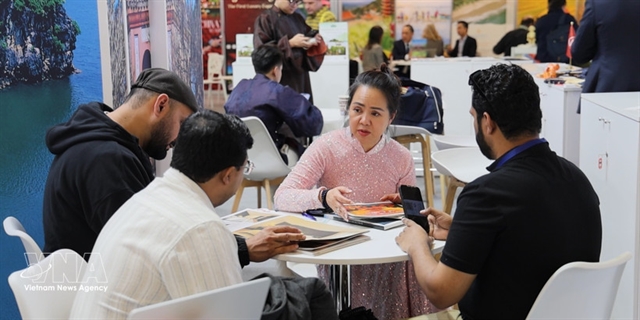 Media-OutReach Newswire
Media-OutReach Newswire

HONG KONG,CHINA - Media OutReach - 28 January2019 - Savvy internet shoppers should befamiliar with Groupon, an American e-commerce marketplace founded in 2008 thatoffers group-buying deals (or social coupons), which are substantially lowerthan market prices. However, there is one condition in getting these lucrativedeals -- there must be a certain number of people to purchase the coupon beforeone can redeem the deal. To reach the so-called 'tipping point', one wouldthink that buyers who are interested should try to spread the deal to as manypeople as possible. However, is it really the case?
"Surprisingly, we found that people were notthat motivated to refer Groupon deals to other consumers, even when the dealwas not yet tipped," explains Prof. Mandy Hu,Assistant Professor of Department of Marketing at The Chinese University ofHong Kong (CUHK) Business School.
"We'd expect that if a customer notices thedeal is not yet tipped when he purchases it, he is more likely to refer it toothers than when the deal is already tipped. However, that was not the case asin our study," she adds.
Her study titled "The 'tippingpoint' feature of social coupons: An empirical investigation"was conducted in collaboration with Prof. Russel S. Winer, William H. JoyceProfessor of Marketing of the Stern School of Business, New York University. Itis the first empirical study using individual level online browsing data toinvestigate consumer behaviour in a group buying website.
The BusinessModel of Groupon
Previous studies have identified the business model of Groupon as acombination of two features: daily deals and group-buying deals. The earlyGroupon website contained three crucial pieces of information to drive salesgrowth: first, the 'tipping point' -- the number of buyers needed to make themerchant honour the discount; second, prior purchase -- the number of people whohave purchased the deal before; and third, referral links which allow users toshare the deal with others.
The use of 'tipping point' and the information of deal purchase statusform a kind of assurance contract -- a mechanism proposed by former game theorystudies in which people voluntarily contribute specific amount of money orprivate good to a public good, and the decision to provide the public good ismade if and only if contributions are sufficient to reach a minimum amount.Otherwise, the contributions are refunded.
"An assurance contract also prompts customers to act as salesagents of the product, as they want to redeem the deals that they're interestedin," says Prof. Hu.
After the company went public in 2011 and a website revamp in 2013,Groupon phased out the information about the tipping point, a feature that oncepeople thought to have played a prominent role in motivating consumerbehaviour. The exact prior purchase number was also replaced by anapproximation.
"These changes prompt one to wonder whether those strategies werejust marketing gimmicks and whether, in particular, the 'tipping point'strategy can significantly affect consumer behaviour," Prof. Hu says.
The Study and Results
Setting outto find the answer, the researchers utilised a large proprietary datasetsupplied by a third-party online marketing research firm consisting of thecomplete clickstream within the browsing sessions of people who used theGroupon website between January and March 2011 in the U.S. The team used socialcomputing techniques to extract the detailed information on the retrieved webpages based on the Groupon URLs to observe individual customer behaviour.
Theresearchers constructed three datasets based on the data: behaviour, dealcharacteristics and demographic. The overall data is 28.2GB in size, containing156,425,702 records. There were 186,756 unique individuals who have visited theGroupon website at least once during the sample period. However, the majorityof the people did not make any purchase.
Surprisingly,when studying the referral behaviour in relation to the 'tipping point', theresearchers found that the number of referrals for Groupon deals was not highat all: There were only 872 referrals out of the total 114,459 deal views (0.76percent). And among the 10,989 purchases, there were only 207 referrals (1.88percent).
Inaddition, the team found that among the 114,549 deals viewed by customers, onlyabout two percent of the deal views were referred by personal recommendationsthrough emails, Facebook or Twitter while almost half of them (49.7 percent)came from a daily e-newsletter sent by Groupon to its subscribers.
"Theseresults indicate that the 'tipping point' status does not lead consumers torefer the deals to others," says Prof. Hu, adding that there could be twopossible explanations.
"Giventhe customers' knowledge that most Groupon deals will be fulfilled, they do notworry about the 'tipping point'. Also, they may worry about referring a baddeal to their friends since making a referral suggests a vouch for the deal'squality," Prof. Hu explains.
The studyalso reveals that some deals are more likely to be referred more than others,such as featured deals with limited quantities and deals that came frompersonal recommendations via emails and Twitter since "personalrecommendations seem more trustworthy than recommendations from Groupon e-newsletters,"she says.
"Moreexperienced Groupon users are more likely to refer a deal to others as they aremore confident about their judgement of the quality of the deal."
So, the 'tippingpoint' information may not affect referrals; however, it does affect thelikelihood to make a purchase and the time leading to a purchase.
Throughexamining the purchase probabilities during each hour before and after the 'tippingpoint', the researchers found that the average purchase probability steadilyincreased until it reached the peak, which was about two hours after thetipping point. After that, the purchase probability decreased but stillmaintained at a higher level than before the 'tipping point'.
"Afterthe 'tipping point', people generally spend less time from the first view untilthey purchase the deal. Hence, the 'tipping point' information helps to speedup the purchase process," Prof. Hu says. "Although it doesn't changeconsumers' referral behaviour, access to information about the 'tipping point'still encourages purchasing and decreases consumers' consideration time."
Contagious Purchase Behaviour:Conformity and Social Learning
Previousstudies have stated two mechanisms that can explain the contagious purchasebehaviour: conformity and social learning. Conformity refers to people whobehave similarly to their peers if a large number of the peers are acting thesame way. For social learning, a person may decide to make a purchase if he orshe believes the action will improve his or her current condition by learningthe experiences from prior buyers.
Inconformity, the purchase depends solely on the popularity of the deal, whereassocial learning relies on how good or desirable the deal proves to be.
In theirstudy, the researchers found that conformity, rather than social learning,played a more dominant role in driving contagious purchases.
"Wefound that the majority of sales occurred on the first half of the day when thedeals were shown, which means people would check the social coupon websitesimmediately and make quick purchase decisions at the start of their workingday. If social learning had played an important role, the sales should haveoccurred later on to allow the information to accumulate," Prof. Huexplains, adding that the majority of U.S. consumers, including new andexperienced subscribers, make their purchase decisions within 30 minutes of thefirst view.
Fall of Groupon and Rise of Pinduoduo
In recentyears, Groupon has seemed to lose its appeal to customers with tumbling revenues.The company reported a 7 percent year-on-year decline in revenues on August 3after reporting a similar decline in the first quarter of this year.
Whilethings are not looking good for Groupon in the U.S., the Chinese e-commercecompany Pinduoduowent public in July this year, raising US$1.6 billion through an IPO in theU.S.
Prof. Hubelieves there are a number of reasons for the three-year-old Chinese companyto "emerge quickly as the third largest e-commerce website in China".
"First,Pinduoduo fully utilises the largest social network in China by partnering withWeChat [owned by Tencent], which makes referrals much easier. Second, its productselection is different from that of Groupon with cheaper products. The averageprice of their products is also much lower than that in [Alibaba's] Taobao andJD.com [the two fastestgrowing retail brands in China]. And low price seems to appeal to afairly large group of customers in China," Prof. Hu comments.
While herstudy has proven that social coupons under Groupon's model couldn't lead tomore referrals, it seems to be working exceptionally well in Pinduoduo's case.Why?
Sheexplains that in Groupon's case, it is the platform (i.e., Groupon) thatdetermines the group-buying opportunity for the customers. Groupon negotiateswith retailers who decide whether they want to work with Groupon or not andunder what terms. From the consumer's perspective, they either take the offeror not. So they are not motivated to refer the coupon to their friends.
"However,Pinduoduo allows its consumers to decide which product they want to form agroup to get the discount. This gives them the sense of control andresponsibility. The 'leader' who initiates a group is motivated to get hisfriends to purchase the same product together. And next time, when he is askedby his friends to purchase their deals, he can't say no easily. This effect ofsocial network creates the real 'social' coupon, which didn't happen in theGroupon model."
"Agood social coupon model is not just forming a group of people to enjoyquantity discounts. It is about motivating the customers to voluntarily form agroup to enjoy quantity discounts. In Pinduoduo's case, everyone actsvoluntarily as a 'salesperson' of the product to their friends oracquaintances. That is why I consider Pinduoduo a successful model creatingreal 'social' coupons."
Lastly,culture also plays an important role in Pinduoduo's success, the professornotes.
"Chinahas a culture of collectivism and conformism, which makes Chinese peoplewilling to purchase the same products as their friends," she says.
Reference:
Hu, MantianMandy, Russell S Winer. 2016. The "TippingPoint" Feature of Social Coupons: An Empirical Investigation. International Journal of Research inMarketing.
Thisarticle was first published in the China Business Knowledge (CBK) website byCUHK Business School: https://bit.ly/2Dglu6K.
About CUHK Business School
CUHKBusiness School comprises two schools -- Accountancy and Hotel and Tourism Management -- and fourdepartments -- Decision Sciences andManagerial Economics, Finance,Management and Marketing. Established in Hong Kong in 1963, it is the firstbusiness school to offer BBA, MBA and Executive MBA programmes in the region.Today, the School offers 8 undergraduate programmes and 20 graduate programmes including MBA, EMBA,Master, MSc, MPhil and Ph.D.
In the FinancialTimes Global MBA Ranking 2019, CUHK MBA is ranked 57th. In FT's 2018 EMBA ranking, CUHK EMBA is ranked 29th in the world. CUHK Business School has the largest numberof business alumni (35,000+)among universities/business schools in Hong Kong-- many of whom are key business leaders. The School currently has about 4,400undergraduate and postgraduate students and Professor Kalok Chan is the Dean ofCUHK Business School.
More information is available at www.bschool.cuhk.edu.hk or byconnecting with CUHK Business School onFacebook: www.facebook.com/cuhkbschooland LinkedIn: www.linkedin.com/school/3923680/.




